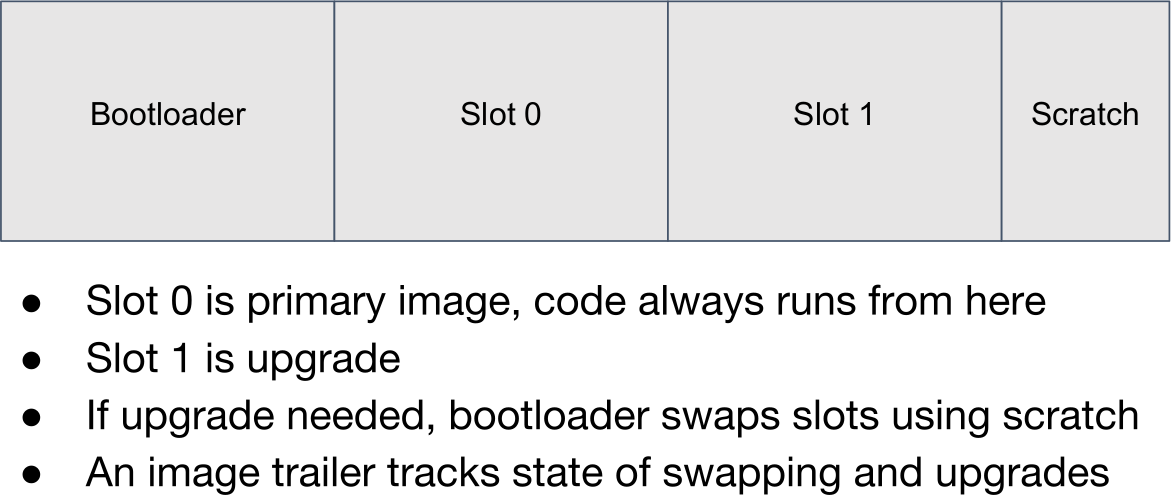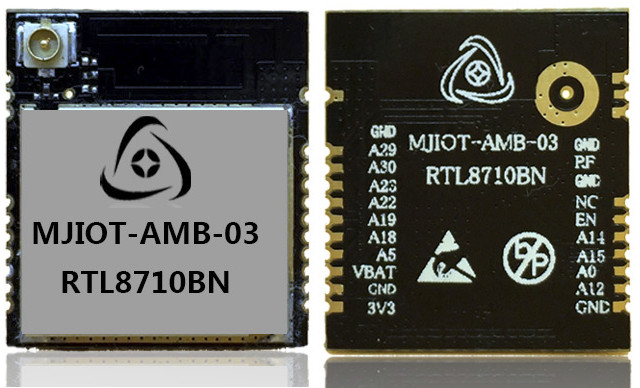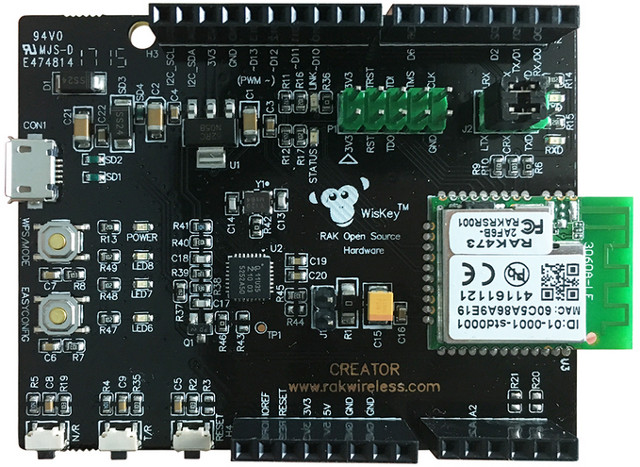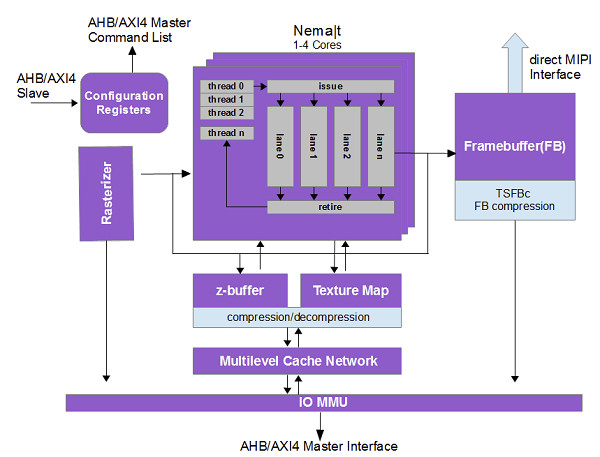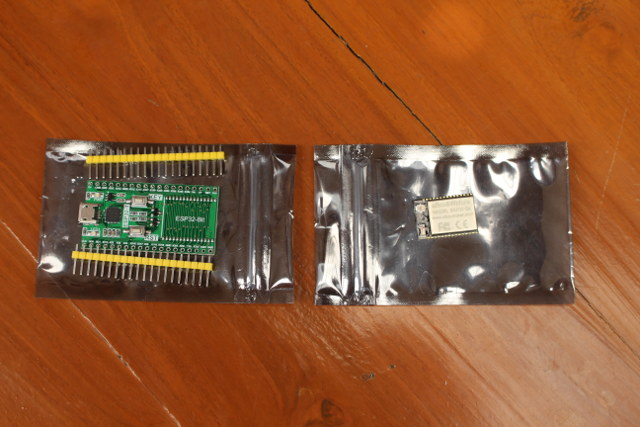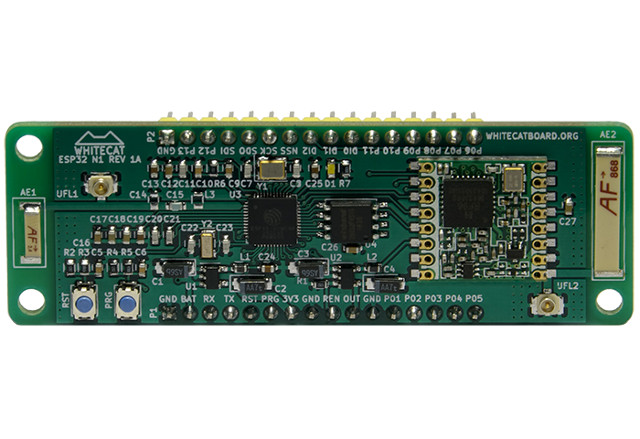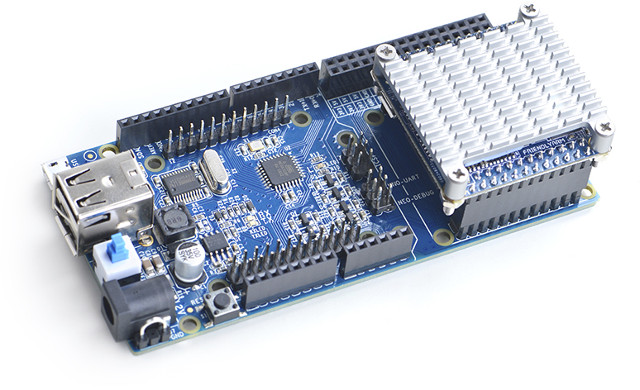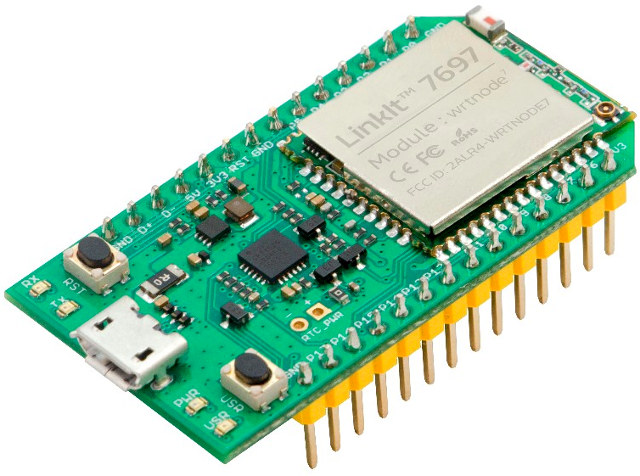Bootloaders takes care of the initial boot sequence on the hardware before the operating system takes over. For example, U-boot is often used in embedded systems as the bootloader before starting the main operating systems such as Linux or FreeBSD. MCUBoot is also a bootloader, but it targets the IoT, here referring to MCU based systems with limited memory and storage capacity, and is born out of work on Apache Mynewt OS, when developers decided to develop the bootloader separately from the operating system. MCUBoot is designed to run on small & low cost systems running on MCU with ~512 KB flash, ~256 KB RAM, and currently supports Zephyr OS and Mynewt, with support for other RTOS also considered. Due to constraint the bootloader uses minimal features with a flash driver, a single thread, and crypto services. The project also aims at solving security and field firmware updates. To address the […]
Realtek RTL8710BN ARM Cortex M4 WiFi MCU, MJIOT-AMB-03 Module & Board, and Ameba 4.0a SDK
We’ve already covered Realtek Ameba ARM Cortex M3 WiSoC several times with their RTL8710AF, RTL8711AM and RT8195AM solutions, but the company has now a new “Ameba Z series” relying on an ARM Cortex M4 core starting with RTL8711BN MCU. RTL8710BN specifications as listed on Realtek website: CPU – ARM Cortex-M4(F) up to 125MHz with FPU (TBC) Memory – 256KB embedded SRAM Storage – 512KB embedded ROM, external flash interface; XIP (eXecut In Place) support Wi-Fi 2.4GHz 1T1R 802.11b/g/n up to 150Mbps; 20MHz and 40MHz WEP, WPA, WPA2, WPS support Security engine – MD5, SHA-1, SHA2-256, DES, 3DES, AES Peripheral Interfaces SDIO Slave 2x UART SPI interface (Master/Slave) 2x I2C interface ADC for voltage management 5x PWM Up to 17x GPIOs Package – QFN-32; 5 x 5 mm AFAIK, other Ameba MCUs do not support XIP, but RTL8710BN and this lowers memory requirements since code can be executed from storage. MJIOT-AMB-03 module […]
$8.80 RAK CREATOR Pro Ameba RTL8711AM WiFi IoT Board Comes with 2MB SDRAM, Up to 64MB SPI Flash
Realtek Ameba is a family of WiFi ARM Cortex M3 micro-controllers for IoT applications, and RTL8710AF got some buzz last year, as modules would sell as low as $2, hereby competing with ESP8266 in terms of price. While the solution was interesting, the community activity around the solution has been slow as ESP8266 already have the community and software support. Other Realtek RTL8195AM and RTL8711AM processors offer much more memory, but at the time, price was not as attractive with Ameba Arduino board based on RTL8195AM selling for $25. But there’s now a new Arduino compatible board made by ShenzhenRAK Wireless Technology (RAK) that comes with RTL8711AM processor with 1MB ROM, 2MB SDRAM, 512KB SRAM, and up to 64MB SPI flash, and sells for just $8.80 + shipping on Aliexpress. CREATOR Pro (Wiskey) board specifications: WiFi Module – RAK473 with Realtek RTL8711AM ARM Cortex M3 MCU @ 166 MHz, 1MB […]
Think Silicon Ultra Low Power NEMA GPUs are Designed for Wearables and IoT Applications
When you have to purchase a wearable device, let’s say a smartwatch or fitness tracker, you have to make trade offs between user interface and battery life. For example, a fitness tracker such as Xiaomi Mi Band 2 will last about 2 weeks per charge with a limited display, while Android smartwatches with a much better interface need to be recharged every 1 or 2 days. Think Silicon aims to improve battery life of the devices with nicer user interfaces thanks to their ultra-low power NEMA 2D, 3D, and GP GPU that can be integrated into SoCs with ARM Cortex-M and Cortex-A cores. The company has three family of GPUs: NEMA|p pico 2D GPU with one core 4bpp framebuffer, 6bpp texture with/out alpha Fill Rate – 1pixel/cycle Silicon Area – 0.07 mm2 with 28nm process Power Consumption – leakage power GPU consumption of 0.06mW; with compression (TSFSc): 0.03 mW NEMA|t […]
Getting Started with ESP32-Bit Module and ESP32-T Development Board using Arduino core for ESP32
Espressif ESP32 may have launched last year, but prices have only dropped to attractive levels very recently, and Espressif has recently released released ESP-IDF 2.0 SDK with various improvements, so the platform has become much more interesting than just a few weeks ago. ICStation also sent me ESP32-T development board with ESP32-bit module, so I’ll first see what I got, before trying out Arduino for ESP32 on the board. ESP32-T development board with ESP-bit Module – Unboxing & Soldering One thing I missed when I asked for the board is that it was not soldered, and it comes in kit with ESP32-bit module in one package, and ESP32-T breakout board with headers in another package. The 21.5x15mm module is based on ESP32-DOWNQ6 processor with 32 Mbit (4MB) of flash, a chip antenna, and a u.FL connector. The module is apparently made by eBox, and also used in Widora board with […]
Whitecat ESP32 N1 Board Combines ESP32 WiFi + Bluetooth SoC with a LoRa Transceiver, Runs Lua RTOS
Espressif ESP32 SoC is gaining traction right now as prices have come down, and there’s still an on-going fight among LPWAN standards with LoRaWAN being fairly popular in Europe. Whitecat, a group of engineers from several companies based in Citilab, Barcelona, Spain, has designed a board that combines both ESP32 and a LoRA transceiver, bringing an alternative to Pycom LoPy board, but instead of running MicroPython, they have developed Lua-RTOS. Whitecat ESP32 N1 hardware specifications: SoC – Espressif ESP32 dual-core Tensilica LX6 microprocessor @ up to 240MHz with 520kB internal SRAM Storage – 4MB flash memory Connectivity LoRa WAN transceiver working in the 868 (EU) MHz / 915 (USA) MHz with on-board antenna, and u.FL connector for external antenna Integrated 802.11b/g/n WiFi transceiver with on-board antenna, and u.FL connector for external antenna Integrated dual-mode Bluetooth (classic and BLE) I/O Headers – 2x 16-pin with SPI, I2C, I2S, SDIO, UART, CAN, […]
NanoPi NEO Boards Get a New Arduino UNO Compatible Dock to Play with Arduino Shields
FriendlyELEC has launched a new accessory board for their NanoPi NEO / NEO 2 / NEO Air boards with UNO Dock V2.0 board compatible with Arduino UNO board thanks to its Microchip ATMeaga328P MCU and compatible headers, and also equipped with headers to plug a NanoPi NEO board. Key features for UNO Dock v2.0 for NanoPi NEO: MCU – Microchip ATmega328 8-bit AVR MCU @ 16 MHz with 2KB SRAM, 32KB flash, 1024 bytes EEPROM USB – 2x USB 2.0 ports connected to NEO board Expansion Arduino UNO headers for shields Female headers to insert the NanoPi NEO board Male headers to access NanoPi NEO boards’ IOs Debugging & Programming – 1x micro USB port (USB to UART), ICSP header, NEO debug UART header Misc – Power on/off, reset button, UART select jumper Power Supply – 12V DC via 2.1mm power barrel The system would be great if NanoPi […]
$14 LinkIt 7697 Bluetooth 4.2 LE and WiFi IoT Board is Powered by Mediatek MT7697 ARM Cortex-M4 MCU
Mediatek Labs has launched a new IoT development, which on the surface looks similar to LinkIt Smart 7688 board, but the internal design is quite different as the MIPS processor and Linux OS, have been replaced by Mediatek MT7697 ARM Cortex-M4 processor running FreeRTOS, and beside WiFi, also includes support for Bluetooth 4.2 LE. LinkIt 7697 board specifications: Wireless SoC – Mediatek MT7697 ARM Cortex M4F MCU @ 192 MHz with 352KB RAM, 4MB flash, 802.11 b/g/n WiFi, Bluetooth 4.2 LE and a PMU Expansion – 2x 14-pin header with 18x GPIO, 2x UART, 1x I2C, 1x SPI, 18x PWM, 4x EINT, 4x ADC (0 to 2.5V), 1x IrDA, 1x I2S Debugging – 1x SWD, CP2102 UART to USB chipset Misc – Reset and user buttons; power and user LEDs Power Supply – 5V via micro USB port Dimensions – 48 x 26 mm The board can be programmed with […]


